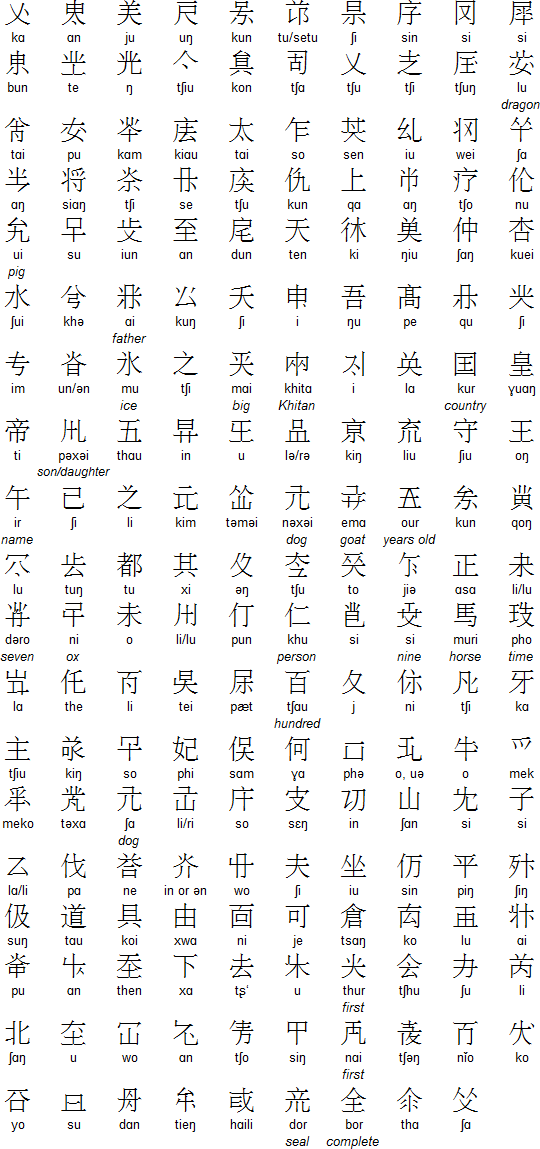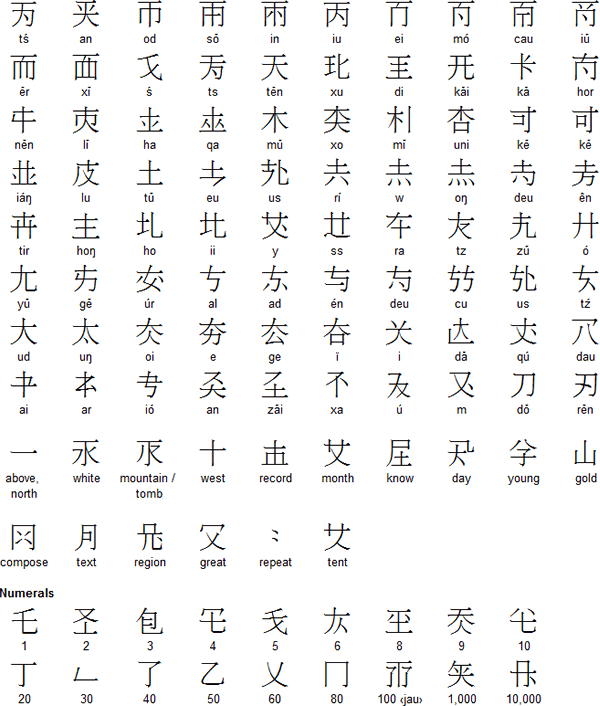
The Khitan people, who dominated a large chunk of Manchuria between 916 and 1125 AD, used two different scripts - the "large script", which came into use in about 920 AD, the "small script", which was reputedly created in about 925 AD by the Khitan scholar Diela, who was inspired by the Uighur alphabet.
The two scripts were used in parallel and appear to have little in common in terms of the forms of the characters and the ways they were assembled into compound characters.
Khitan, an extinct Mongolic language which was once spoken in Manchuria in what is now northeastern China. The language and the Khitan people were known as 遼 (Liao) in Chinese.
The large Script was written in vertical columns running from top to bottom and from right to left. Some of the characters were taken from Chinese, while others were independent inventions.
Here are most of the large Script characters. The variant forms of some characters are not shown here.

Source: http://www.babelstone.co.uk/Khitan/_LiuWang2004.html
The small script consists of 370 characters, including logograms, syllabograms and possibly some phonograms.
A selection of small script characters

Source: https://www.babelstone.co.uk/Khitan/Kane2009List.html
Information about Khitan | Numbers
Information about the Khitan script and people
http://en.wikipedia.org/wiki/Khitan_script
http://en.wikipedia.org/wiki/Khitan_people
http://www.chinaknowledge.de/History/Song/liao-literature.html
http://www.babelstone.co.uk/Khitan/
Akkadian Cuneiform, Ancient Egyptian (Demotic), Ancient Egyptian (Hieratic), Ancient Egyptian (Hieroglyphs), Chinese, Chữ-nôm, Cuneiform, Japanese, Jurchen, Khitan, Linear B, Luwian, Mayan, Naxi, Sawndip (Old Zhuang), Sui, Sumerian Cuneiform, Tangut (Hsihsia)
Page last modified: 06.08.24
[top]
You can support this site by Buying Me A Coffee, and if you like what you see on this page, you can use the buttons below to share it with people you know.

If you like this site and find it useful, you can support it by making a donation via PayPal or Patreon, or by contributing in other ways. Omniglot is how I make my living.
Note: all links on this site to Amazon.com, Amazon.co.uk
and Amazon.fr
are affiliate links. This means I earn a commission if you click on any of them and buy something. So by clicking on these links you can help to support this site.
[top]